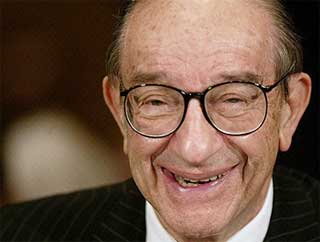Just saw the second season finale. And I’m just as stunned as Lee Goldberg. Ron Moore has, with his writers, somehow managed to redeem science fiction television, transferring the moral and political subtext quite present in today’s speculative fiction to episodic drama. He has dared to imbue this series with scope and an almost Tolstoyesque range of assorted characters, without sacrificing the hard space opera component.
Even before the audacious subtitle “ONE YEAR LATER,” last night’s episode was dealing with some pretty hefty issues. A rigged presidential election recalling Miami-Dade County and the moral consequences of interferring with democracy, the lingering aftermath of a state presiding over a woman’s uterus, the gloriously incompetent Baltar, and, if politics wasn’t your thing, Starbuck wondering if she was really ready to commit to a boytoy, an utterly shelled out Tyrol trying to find an identity, and Apollo struggling with his new role as a commander.
In other words, not only do we have characters here who are utterly fucked up, but we have a government presented, warts and all, that represents the flawed will of the people.
I’m almost positive that Ron Moore had China Mieville’s New Crobuzon books sitting nearby when he planned this out with his writers. I can’t recall a single American television series that has dared to combine such a mammoth political scope with a dogged determination to explore flawed human beings. And this in a bona-fide serial format. Deep Space Nine, which, incidentally, Moore did write for, came close, but was, alas, hindered by the need to adhere to the antiseptic utopia of the Star Trek universe.
Something like Lost tantalizes us, but has failed in part this season to live up to its bargain that there is some grand masterplan at work. By contrast, Moore’s Battlestar Galactica has remained absolutely consistent in quality since its inception. Battlestar does not torture us with tedious puzzles that, in all likelihood, are meaningless. It takes more chances and has more followthrough, even on minor storylines that appear to have been concluded. It willingly paints itself into a corner again and again and, like a grand Houdini act, still manages to find an escape.
Frankly, I’m not certain how much longer Moore and company can keep this up. But I’ve greatly enjoyed the ride so far. Battlestar isn’t just escapism. It’s great television. I rarely use that modifier with relation to the boob tube. Indeed, I rarely turn the evil Trinitron on. But Battlestar has restored my faith that, every now and then, television can live up to its end of the bargain.
 Even so, I felt a slight empty feeling making all that money. Could I really rule the world so effortlessly? Could I bend the world to my will? Even Bill Townsend didn’t know that most of my private capital was tied up in abstruse mutual funds, all designed to take advantage of the United States Tax Code, which I had memorized at the age of seven.
Even so, I felt a slight empty feeling making all that money. Could I really rule the world so effortlessly? Could I bend the world to my will? Even Bill Townsend didn’t know that most of my private capital was tied up in abstruse mutual funds, all designed to take advantage of the United States Tax Code, which I had memorized at the age of seven.